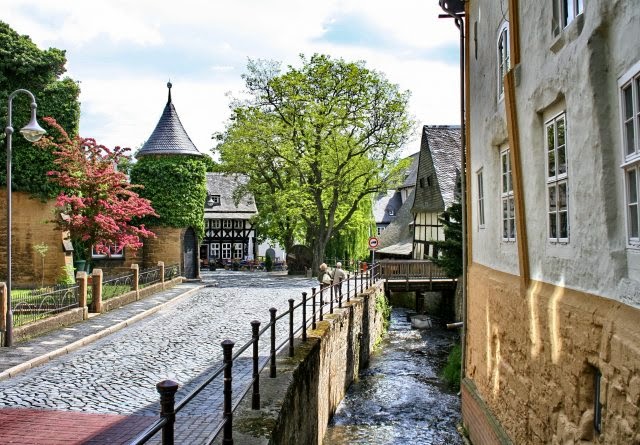Ich habe die Nase voll. Tod, Katastrophe, Anschlag. Tod, Katastrophe, Anschlag. Ist die Welt so bösartig, wie sie auf uns einprasselt? Würde man den Eilmeldungen der auflagenstärksten Zeitungen, der meist gesehenen Nachrichtensendungen und der meist geklickten Online-Portale Glauben schenken, dann ist die Welt dem Untergang geweiht. Ich habe jetzt alle Nachrichten-Apps auf meinem Smartphone deinstalliert, weil jede destruktive Nachricht alle meinen guten Vorsätze für den Tag zunichte machen kann. „Schreibt nicht den Teufel an die Wand!“ weiterlesen
Your Monthly Good News, February 2015
Your Monthly Good News, January 2015
Your Monthly Good News, December 2014
This is only the news we have noticed. If you come across something, a report, a short note, whatever, please just send us the link via mail@unserezeit.eu and we’ll include it in our next collection.
December’s Best News
Es gibt eine Nachricht aus dem Dezember, die kaum jemand mitbekommen zu haben scheint: Die Residenzpflicht, die bisher die Bewegungsfreiheit vieler Asylbewerber in Deutschland auf sinnlose und empörende Weise einschränkte, wurde weitgehend abgeschafft. Asylbewerber können nun nach drei Monaten frei in Deutschland reisen. Und das ist nicht alles. In den letzten Monaten wurde die Stellung von Asylbewerbern in Deutschland insgesamt eminent verbessert: Sie dürfen nun schon nach drei (statt wie bisher erst nach neun) Monaten arbeiten und sich bundesweit bewerben; nach (immer noch viel zu langen) 15 Monaten – bisher waren es vier Jahre! – wird ihre Bewerbung gleichberechtigt (d. h. ohne die Prüfung, ob ein deutscher Bewerber vorzuziehen sei) berücksichtigt. Sie bekommen Geld- statt Sachleistungen, und diese werden an das Hartz-IV-Niveau angepasst. Ein nicht geringer Teil der Forderungen, die das Flüchtlingscamp auf dem Oranienplatz erhob, kann damit, ohne dass man die immer noch bestehenden Ungerechtigkeiten kleinreden sollte, als erfüllt gelten. „Your Monthly Good News, December 2014“ weiterlesen
Your Monthly Good News, November 2014
This is only the news we have noticed. If you come across something, a report, a short note, whatever, please just send us the link via mail@unserezeit.eu and we’ll include it in our next collection.
November’s Best News
Your Monthly Good News, October 2014
Konservatismus und Ambivalenz – Eine neue deutsche Möglichkeit
„Konservatismus und Ambivalenz – Eine neue deutsche Möglichkeit“ weiterlesen




